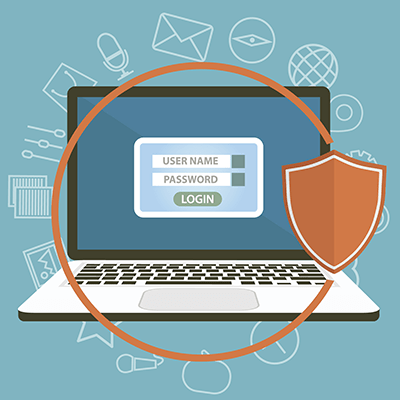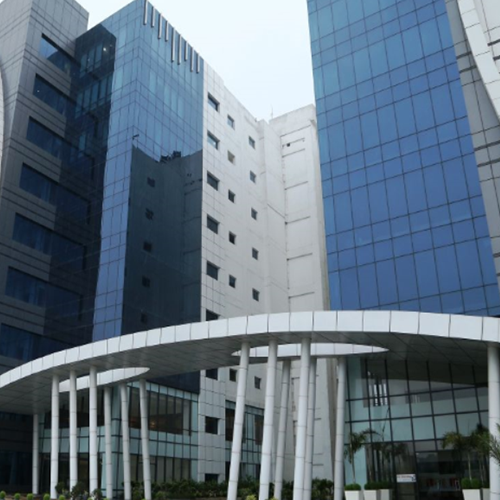What are the considerations for Confidentiality and Security about Virtual Office Solutions for Consultants?

1.Introduction to Virtual Office Solutions for Consultants

The rise of technology in today’s quickly changing corporate world has altered the way professionals function. Consultants, in particular, have embraced the concept of virtual offices to streamline their operations, improve productivity, and provide superior services to their clients. This essay digs into the world of virtual office solutions for consultants, throwing light on their numerous benefits, with a special emphasis on confidentiality and security concerns.
Explanation of Virtual Office Solutions
- Virtual office solutions represent a sea change in the way consultants manage their workspaces and relationships. Unlike traditional brick-and-mortar offices, these solutions use technology to create a collaborative atmosphere in which consultants may operate productively and remotely. The heart of this method is the use of digital tools to enhance communication, project management, and information exchange, resulting in a continuous workflow that is not limited by geographical restrictions.


Importance of Confidentiality and Security for Consultants
- Consultants frequently handle sensitive and confidential information from clients spanning various industries. In light of this, Virtual Office Solutions for Consultants play a pivotal role in ensuring the utmost level of confidentiality and security for this invaluable data. The repercussions of a breach in these realms can be severe, causing not only reputational harm but also potential legal entanglements and the erosion of client trust. Here, virtual office solutions step in as a strategic platform, systematically addressing and mitigating these challenges to fortify the integrity of consultants’ operations.
Overview of the Outline: Focusing on Confidentiality and Security Aspects
- This essay is designed to cover all of the important aspects of confidentiality and security in the context of virtual office solutions for consultants. The next sections dig into the procedures, strategies, and practises that can be put in place to protect client data, protect against cyber attacks, and ensure compliance with relevant regulations.
2.Confidentiality Considerations
In an era where data breaches and cyberattacks have become all too common, safeguarding client data is non-negotiable for consultants. This section explores strategies to ensure the confidentiality of sensitive information.
Client Data Protection : Ensuring Virtual Office Solutions for Consultants
The Importance of Client Information Security : Consultants handle a wide range of client data, from financial reports to business strategies. Protecting this information, in the context of Virtual Office Solutions for Consultants, is not only an ethical commitment, but also a legal one.

Data Transmission and Storage Encryption : The implementation of strong encryption algorithms within Virtual Office Solutions for Consultants ensures that data stays secure during transmission and storage. To avoid unauthorized access to secret material, consultants must use encryption methods that guarantee the confidentiality and integrity of sensitive information.
Limiting Data Exposure Through Role-Based Access Control : Implementing role-based access control enables consultants to assign different levels of access to team members and customers. This restricts data exposure to only those who need it to complete their tasks.

Non-Disclosure Agreements (NDAs)
Implementing NDAs with Clients and Team Members : Non-Disclosure Agreements (NDAs) are indispensable tools for establishing a legal framework of confidentiality within the realm of Virtual Office Solutions for Consultants.Consultants should ensure that clients and team members sign NDAs before accessing sensitive information.
Legal and Ethical Considerations for NDAs : Consultants must navigate the legal and ethical landscape of NDAs. They should clearly define the scope, duration, and consequences of breaches in the agreements.
Enforcing NDAs in a Virtual Environment : Enforcing NDAs in a virtual context requires robust technological solutions and stringent monitoring. Virtual office solutions provide mechanisms to track access and usage, aiding in NDA enforcement.
Secure Communication
Encrypted Communication Tools : End-to-end encrypted messaging platforms, an integral component of Virtual Office Solutions for Consultants, are vital for secure communication. Consultants should adopt tools that ensure the privacy of their conversations, providing a shield against unauthorized access and data breaches.
Best Practices for Sharing Sensitive Information : Consultants must educate themselves and their clients about best practices for sharing sensitive information. This includes avoiding unsecured channels such as public Wi-Fi networks and utilizing secure file-sharing methods.
Educating Clients About Secure Communication Methods : Consultants should proactively educate their clients about secure communication methods to foster a collaborative environment that prioritizes confidentiality.
3.Security Measures
The digital landscape is riddled with cyber risks that might jeopardise the security of virtual office environments. This section goes into the security methods that can be used to fortify consultants’ virtual workspaces.
Virtual Private Networks (VPNs)
Using VPNs for Secure Remote Access : Virtual private networks (VPNs) play a crucial role in the realm of Virtual Office Solutions for Consultants. These networks create a secure tunnel for data transmission, enabling consultants to access their virtual offices remotely without exposing sensitive information to potential attackers.
Benefits of VPNs in Preventing Data Interception : By encrypting data traffic, VPNs prevent eavesdropping and data interception, safeguarding consultants’ communication and information.

Recommendations for Choosing Reliable VPN Services : Not all VPNs are created equal. Consultants should opt for reputable VPN services that offer robust encryption, a strict no-logs policy, and reliable connection speeds.
Multi-Factor Authentication (MFA)
Explaining MFA and Its Importance : Multi-Factor Authentication, a critical aspect of Virtual Office Solutions for Consultants, adds an extra layer of security by requiring users to provide multiple forms of verification before accessing their virtual office. This preventive measure becomes exceptionally significant in thwarting unauthorized access, even if passwords are compromised..
Implementing MFA for Accessing Virtual Office Resources : Consultants should mandate MFA for all team members accessing virtual office resources. This thwarts unauthorized access attempts.
Biometric Authentication as an Advanced Security Layer : Cutting-edge virtual office solutions for consultants offer biometric authentication, using unique physical traits like fingerprints or facial recognition to enhance security.

Regular Software Updates
The Importance of Updating Software and Applications : Patches for vulnerabilities that hackers can exploit are included in regular software upgrades. To protect the security of their virtual office environment, consultants must prioritise timely updates.
Preventing Security Breach by Patching Vulnerabilities : Hackers frequently target known flaws in obsolete software. Consultants must be careful in patching such vulnerabilities as soon as possible.
Automation of Update Processes to Ensure Compliance : Automating software update processes guarantees that consultants do not neglect key security upgrades, allowing them to remain compliant with the most recent security requirements.
4.Data Backup and Disaster Recovery
Data loss can be catastrophic for consultants.This section outlines strategies to back up data and recover from potential disasters.
Regular Data Backups
Implementing Automated Backup Solutions : Automated backup solutions ensure that critical data is regularly backed up, minimizing the risk of data loss.
Off-Site and Cloud-Based Backup Options :
Consultants should diversify their backup locations by utilizing off-site and cloud-based Virtual Office Solutions for Consultants.This guards against physical damage or theft of hardware, ensuring that critical data remains accessible and secure even in the face of unforeseen incidents.

Ensuring Data Integrity During Backups : Consultants should verify the integrity of backup data to ensure that corrupted or incomplete backups do not compromise data recovery efforts.

Disaster Recovery Plan
Creating a Comprehensive Disaster Recovery Strategy : Consultants must create a comprehensive disaster recovery plan that details what to do in the event of data loss, cyberattacks, or natural disasters, all while leveraging the benefits of Virtual Office Solutions for Consultants.
Identifying Potential Threats and Risks : To detect potential threats to their virtual office environment, consultants should undertake a risk assessment. This helps them to plan ahead of time for specific eventualities.
Periodic testing and refinement of the disaster recovery plan : Disaster recovery strategies are only effective if they are routinely evaluated and refined. To ensure the effectiveness of their approach, consultants should perform simulated drills.
5.Compliance and Regulations
The digital world operates within a framework of regulations and compliance standards. This section explores how consultants can align their virtual office solutions with these requirements.
Industry-Specific Regulations
Understanding Relevant Industry Regulations (HIPAA, GDPR, etc.) : Consultants operating in specific industries need to understand and adhere to industry-specific regulations that govern the handling of sensitive data.
Ensuring Virtual Office Solutions Comply with Regulations : Virtual office solutions must align with industry regulations. Consultants should assess whether their chosen tools meet the necessary compliance standards.
Penalties for Non-Compliance and Potential Legal Implications : Non-compliance with industry regulations can lead to severe penalties and legal consequences. Consultants should be aware of the potential ramifications.

Privacy Policies and Terms of Service
Creating Clear and Transparent Privacy Policies for Clients : Consultants should create clear and transparent privacy policies that outline how client data is gathered, handled, and secured inside the virtual office environment.
Clarifying Data Usage, Retention, and Sharing Policies : Consultants must state how long client data will be kept and when it may be shared with third parties.
Educating Clients on Their Rights and Options : Consultants should prioritize educating clients on their data rights within the context of Virtual Office Solutions for Consultants. It is essential to enlighten clients about the available options for controlling the use of their data, fostering a sense of trust and transparency in the virtual office environment.
6.Employee Training and Awareness

A security-conscious workforce is an essential line of defense against cyber threats. This section emphasizes the importance of employee training and awareness.
Security Training
Providing Employees with Cybersecurity Training : Consultants must provide comprehensive cybersecurity training to employees, empowering them with the knowledge to identify and respond to potential threats.
Recognizing Social Engineering and Phishing Attempts : Social engineering and phishing attacks are common vectors for cyber threats. Consultants should train employees to recognize and avoid falling victim to these tactics.
Promoting a Culture of Security Consciousness : Creating a culture where security is a priority encourages employees to remain vigilant and take proactive measures to protect the virtual office environment.
Incident Response
Establishing Protocols for Reporting Security Incidents : Consultants should establish clear protocols for reporting security incidents promptly. This enables swift response and mitigation.
Rapid Response and Mitigation Strategies : In the event of a security breach, consultants must have strategies in place to respond rapidly, contain the breach, and mitigate its effects.
Learning from Incidents to Improve Security Measures: Post-incident analysis is crucial for refining security measures. Consultants should conduct thorough investigations to identify vulnerabilities and enhance protection.
Conclusion
Consultants must prioritize confidentiality and security inside their best virtual office in Chennai environments in an interconnected world where information moves across digital channels. This article has covered a wide range of virtual office solutions topics, including encryption and secure communication, as well as disaster recovery and compliance. As the consulting landscape evolves, developing and implementing strong confidentiality and security practices enables effective and long-term consulting engagements. By implementing the best practices suggested in this article, consultants can confidently navigate the digital arena, protecting both their clients’ interests and their professional reputation.












